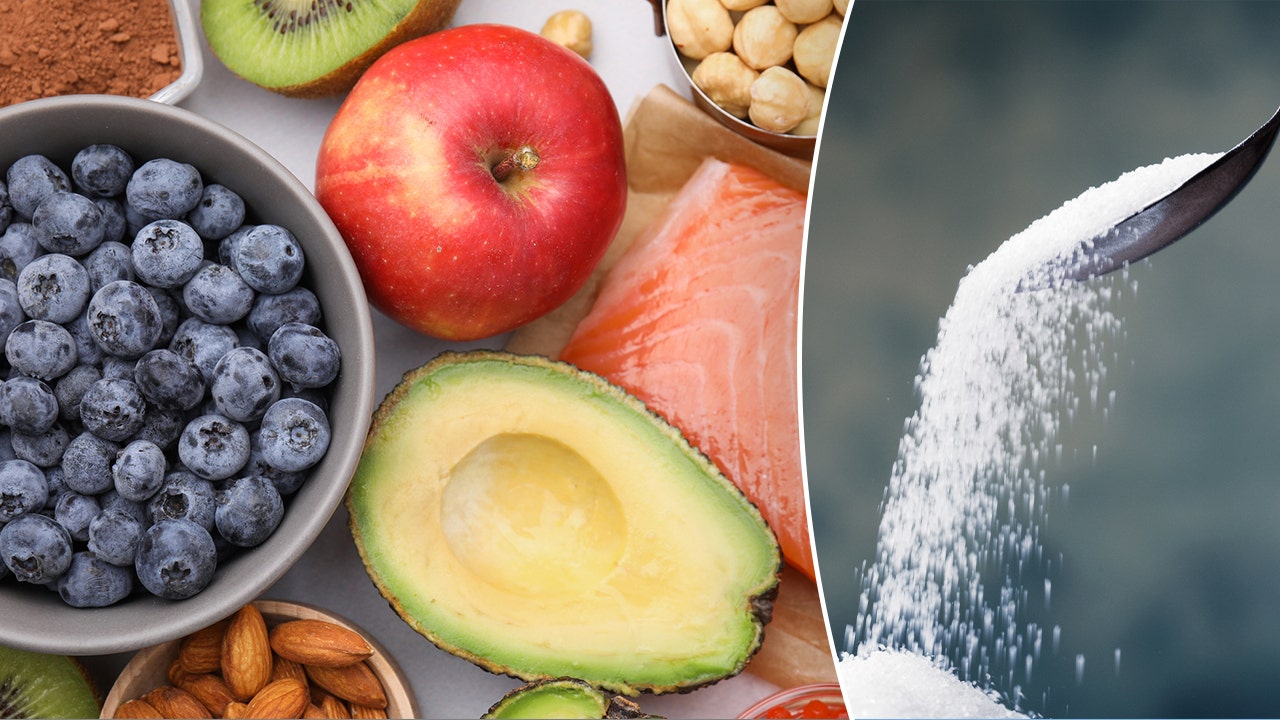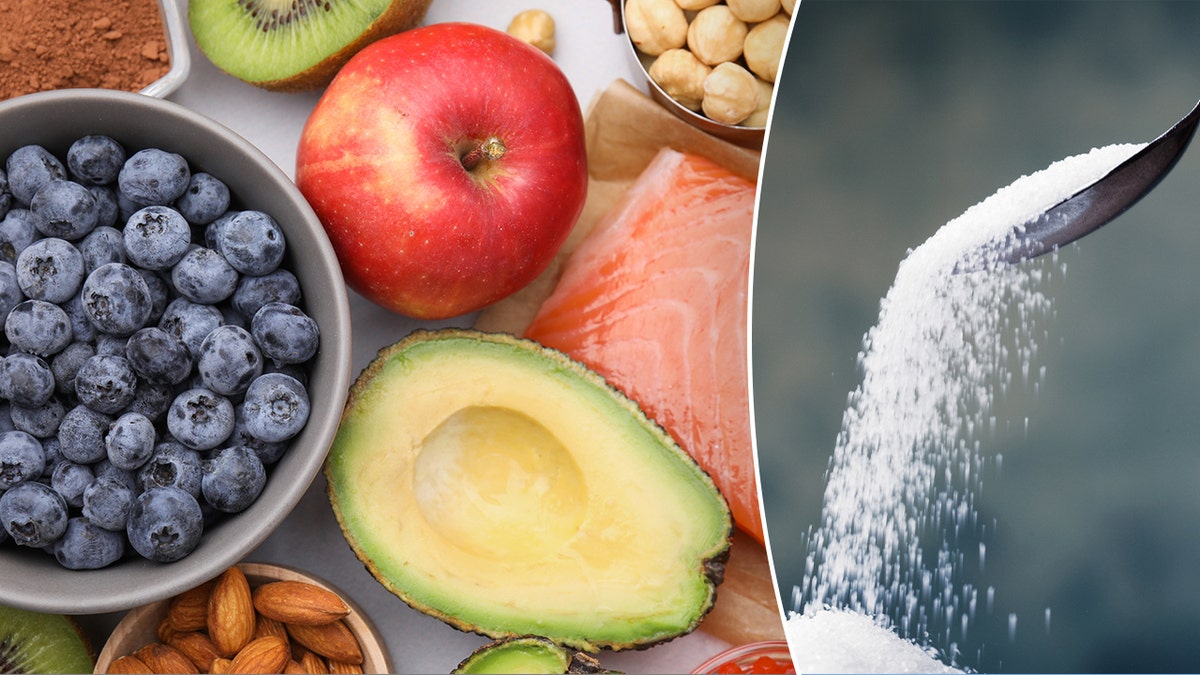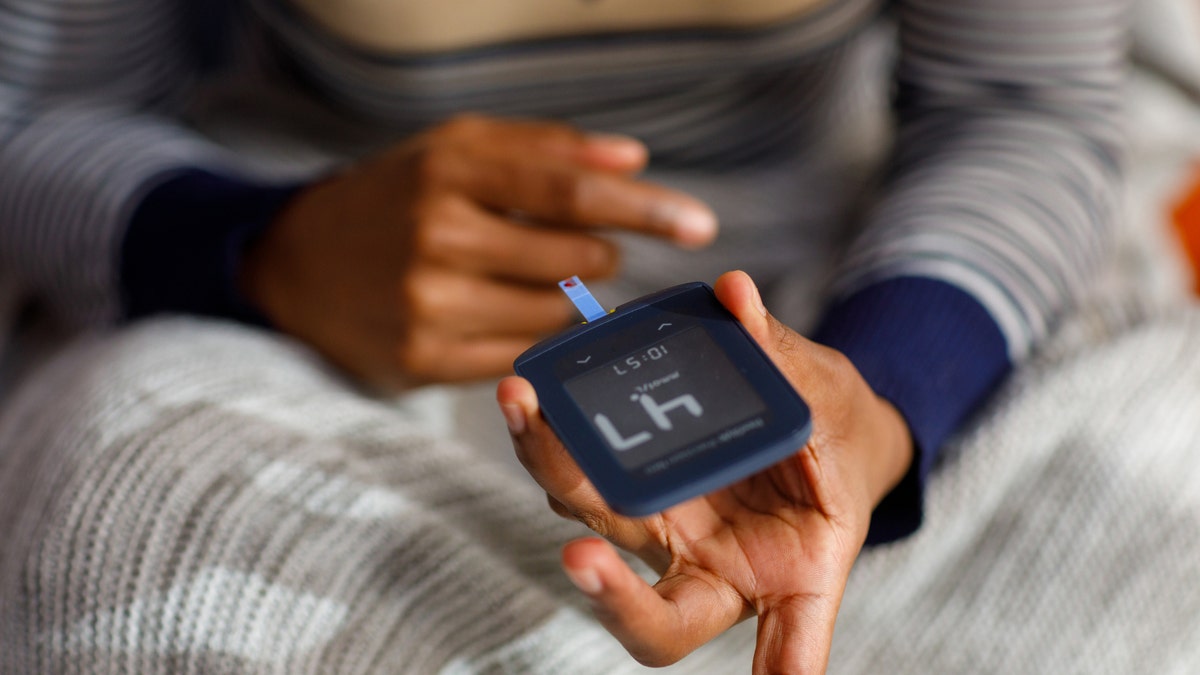
Diets aimed at eliminating or reducing added sugars have become popular.
While cutting out all added sugars may be extreme, consuming in moderation can be beneficial to your body and make you feel better overall.
Nichola Ludlam-Raine, a U.K.-based registered dietitian and author of “How Not to Eat Ultra-Processed,” shared with Fox News Digital the benefits of cutting down on processed sugar for 30 days or more and her tips for those who’d like a diet like this.
MEDITERRANEAN DIET COULD HELP WOMEN LIVE LONGER, HARVARD STUDY FINDS
“A diet low in processed or added sugars can be highly beneficial and is generally recommended as part of a healthy lifestyle,” Raine told Fox News Digital in an email. “The key is moderation and balance. It’s important to focus on a nutrient-rich diet that includes a variety of foods to ensure you’re getting all necessary vitamins and minerals.”
When thinking about cutting out sugar, it’s vital to understand the difference between added sugar and natural sugar.

By lowering your intake of processed sugar, you can experience many health benefits. A registered dietitian provided her tips and benefits for a low-sugar or no-added-sugar diet. (iStock)
Naturally occurring sugars are found in foods, according to the American Heart Association. These types of sugars are found in foods like fruit and milk.
Added sugars are added to food and drinks during processing, according to the source, like in soda and candy.
This can also refer to the sugar that is added to a food or beverage in preparation, like adding sugar to a cup of coffee.
Benefits
- Improved energy levels
- Weight management
- Reduced risk of chronic diseases
- Improved dental health
- Better skin health
1. Improved energy levels
When you take processed sugars out of your diet, you’re likely to see a spike in your energy levels.
6 SURPRISINGLY SIMPLE WAYS TO KEEP YOURSELF HEALTHY (HINT: SLEEP IS INVOLVED)
You could find yourself being more productive throughout the day and feel more alert and ready to take on the tasks that come your way.
“Processed sugars (particularly in large amounts) can cause rapid spikes and crashes in blood glucose levels, leading to energy fluctuations,” Raine told Fox News Digital. “Avoiding these can help maintain stable energy throughout the day. Reducing processed sugar intake will lead to more consistent energy levels, reducing feelings of fatigue and improving overall productivity.”
Cutting out processed sugars can also improve overall mood and mental clarity, Raine noted.

By eating healthfully and lowering your processed sugar intake, you could notice a boost in your mood and overall productivity. (iStock)
“A high sugar intake (from ultra-processed foods specifically) has been linked in research to increased risks of depression and anxiety — although poor mental health may cause an increase in the number of sugary foods being eaten,” Raine said.
“Stabilizing blood sugar levels by avoiding processed sugars can contribute to better mood and cognitive function.”
2. Weight management
If you want to lose weight, there are so many different ways to do so.
When trying to lose weight, it’s important to find that healthy balance of a proper diet and exercise. Doing one without the other is going to make it a lot more difficult to see results.
You could see your weight drop the next time you step on the scale by following a mostly processed sugar-free diet.
“Processed foods high in sugar are often calorie-dense and can contribute to weight gain when consumed in large amounts,” Raine said. “Reducing sugar intake can help control calorie consumption and support weight loss or maintenance.”
3. Reduced risk of chronic diseases
High sugar consumption can be linked with an increased risk of conditions, including Type 2 diabetes, heart disease and metabolic syndrome.

Monitoring your processed sugar intake can contribute to a lower risk of chronic diseases such as Type 2 diabetes. (iStock)
On a global scale, having an unhealthy diet is one of the biggest contributors to heart disease, according to the World Health Organization (WHO). Similar risk factors of being overweight and lacking physical activity are associated with Type 2 diabetes, according to the National Institutes of Health (NIH). Metabolic syndrome is caused by a person’s weight.
So, taking added sugar out of your diet or keeping intake to a minimum can lower your risk of being diagnosed with one of these conditions.
4. Improved dental health
If you want pearly whites free of painful cavities, cutting added sugars from your diet is a great way to achieve a sparkling and healthy smile.
CLICK HERE TO SIGN UP FOR OUR LIFESTYLE NEWSLETTER
“Sugar is a primary contributor to tooth decay and cavities,” Raine said.
Cutting out added sugars can help keep your teeth strong and healthy. If you do snack or sip on something sugary, make sure to give your teeth a good brush afterward to help avoid a painful trip to the dentist’s office.
5. Better skin health
Glowing skin isn’t always achieved with expensive moisturizers and creams.

Lowering your added sugar intake can help your skin glow and feel healthy. (iStock)
You can help your skin health by keeping your added sugar intake low.
“A high sugar intake can lead to inflammation and may contribute to skin conditions like acne,” Raine told Fox News Digital. “Reducing sugar can improve skin appearance and health with fewer blemishes and reduced signs of aging.”
Tips for lowering or avoiding processed sugar
- Carefully read food labels
- Choose whole foods
- Substitute with natural sweeteners
- Increase protein and fiber intake
1. Carefully read food labels
If you want to cut out processed sugar, and you’re not in the habit of checking food labels already, this is a routine you’ll need to form.
For more Lifestyle articles, visit www.foxnews.com/lifestyle
There are so many different names for added sugars you could spot on labels. Familiarize yourself with them, so the next time you’re at the grocery store, an alarm will go off in your head when you see added sugar in a product.
Types of added sugars you could come across on labels are as follows, according to the American Heart Association:
- Brown sugar
- Corn sweetener
- Corn syrup
- Fruit juice concentrates
- High-fructose corn syrup
- Honey
- Invert sugar
- Malt sugar
- Molasses
- Raw sugar
- Sugar
- Sugar molecules ending in “ose” (dextrose, fructose, glucose, lactose, maltose, sucrose)
- Syrup
2. Choose whole foods
Next time you’re doing your weekly grocery shopping, look for whole foods you can purchase to help lower your sugar intake.

Shop for unprocessed foods like fruits and vegetables that have natural sugars. (iStock)
“Focus on whole, unprocessed foods like fruits, vegetables, lean proteins and whole grains,” Raine told Fox News Digital. “These foods have naturally occurring sugars that are released more slowly and provide additional nutrients.”
Before you leave for the grocery store, it’s important to map out your meals ahead of time so you know what to look for while you’re at the store. Try to cook at home as much as possible so you know exactly what ingredients are going into each dish.
3. Substitute with natural sweeteners
If you want a touch of sweetness to a dish or a beverage, there are ways to satisfy that craving in a healthy way.
CLICK HERE TO GET THE FOX NEWS APP
“Use natural sweeteners like honey or maple syrup in moderation if you need a sweet taste,” Raine said. “Be mindful that these also contain sugars, but they are less processed.”
Also, while trying this diet, make sure your body is fully hydrated. If you want to track how much water you consume to make sure you are getting enough, purchase a water bottle with labels that outline how much water you should drink at certain points throughout the day.
Even when you aren’t participating in a rigorous activity, it’s vital to keep your body hydrated. Raine noted that sometimes thirst can be mistaken for hunger or sugar cravings. So, make sure your body is fueled with water all day.
4. Increase protein and fiber intake
To keep your body away from added sugars, make sure your fiber and protein intake is high.

Keep your diet high in protein-rich foods and low in foods with added sugar for a healthy, balanced diet. (iStock)
“These nutrients help stabilize blood sugar levels and keep you feeling full longer, reducing cravings for sugary snacks,” Raine said.
Foods like eggs, nuts and fish are high in protein that you can incorporate into your diet, according to Healthline.
At the end of the day, a healthy lifestyle revolves around balance and what works best for you.
“It’s essential to approach any dietary change with flexibility. Some people may experience withdrawal symptoms, such as headaches or irritability, initially,” Raine said. “These typically subside after a few days. If you have underlying health conditions or concerns, consulting with a health care professional or a registered dietitian before making significant dietary changes is advisable.”
